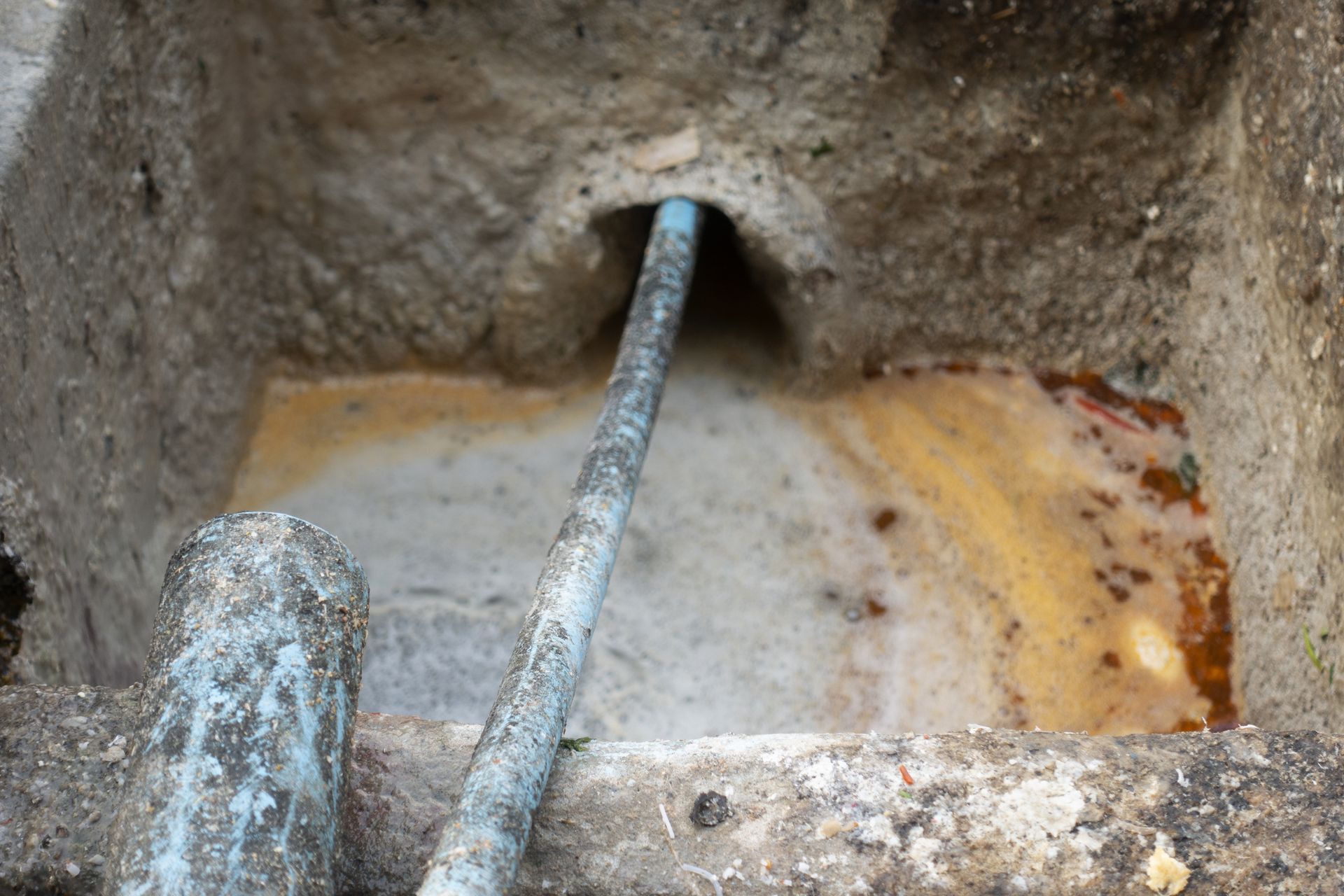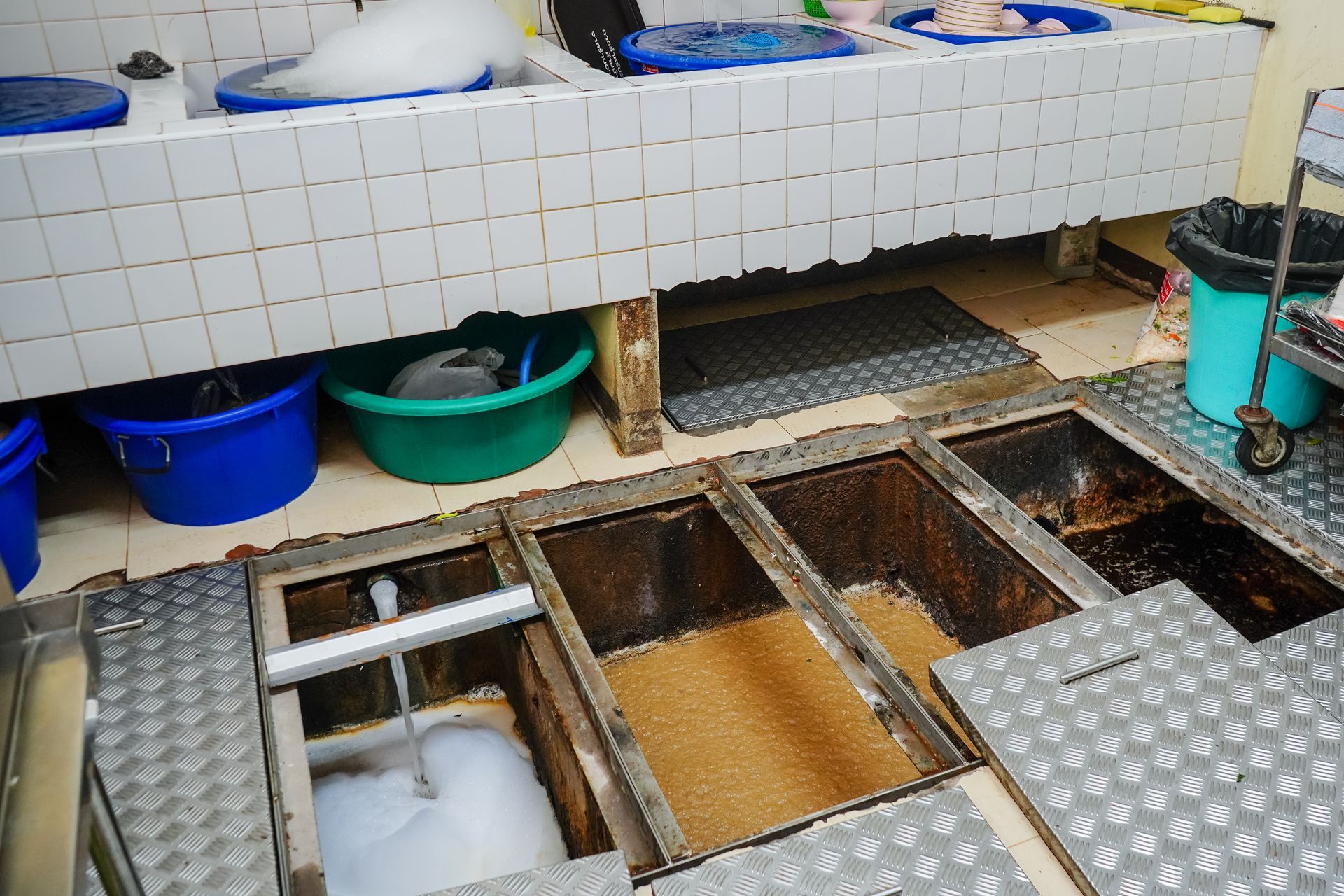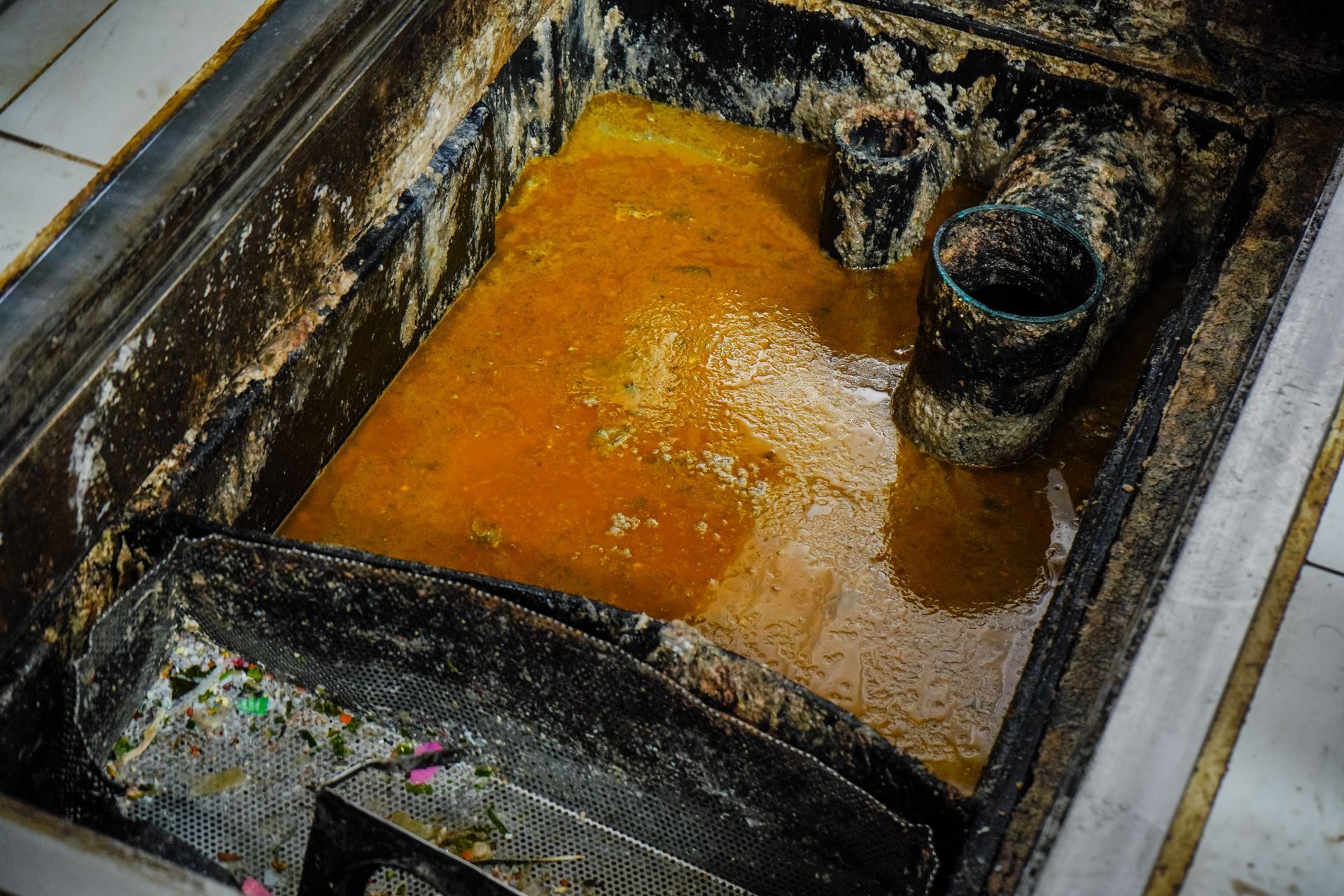How Long Does It Take to Clean a Grease Trap?

Cleaning a grease trap can take anywhere from 45 minutes to a few hours, depending on the specifics of your trap, your business layout and the crew you hire to dispose of the fats, oils and grease (FOG) and wastewater in your grease traps. At Southern Green Industries, we strive to make every step of the process as stress-free as possible, providing businesses with an easy and minimally disruptive solution for required cleaning.
Factors That Can Affect Cleaning Time for Commercial Kitchens
There are the more obvious factors that will impact how long the job will take, such as how large the grease trap or interceptor is, how many grease traps or interceptors your business uses and the types of grease traps. Properties like stadiums and university kitchens may have numerous, sizable underground grease traps spread across different parts of the property and dining halls. Large volume food prep and dishwashing will inevitably necessitate larger grease trap capacity, and the labor and vacuum tanker capacity will vary based on the size and number of grease traps.
Depending on the business, these grease traps may be under the sink or – more likely with most moderate to high volume food service businesses – one or more large underground grease traps or interceptors. Under-sink grease traps are easier to access and faster to clean because there’s less volume and space to clean, but they typically fill up quicker.
In contrast, while underground units require specialized knowledge and equipment to vacuum and thoroughly clean, taking longer to do the job right, business owners may require less frequent service.
Although municipalities in the Atlanta area and throughout Georgia do have minimum time intervals for cleaning, some businesses may require more frequent cleanings due to the 25 percent rule. This guideline means the trap must be cleaned when 25 percent of the trap’s capacity is filled with fats, oils and grease.
For example, most municipalities require indoor grease traps to be professionally cleaned and serviced once every two weeks (or earlier if necessitated by the 25 percent rule), while outdoor grease traps only need to be cleaned every 90 days if the 25 percent volume isn’t met prior to the deadline.
Employee behavior and company policy may impact cleaning frequency, such as if the kitchen is diligent about scraping dishes before washing and rigorously using sink strainers to prevent food waste from reaching your grease trap.
Neglecting routine maintenance could cause plumbing problems and clogs, not to mention sewer blockages and damage. Failure to adhere to mandatory grease trap cleaning schedules can make future cleaning a more arduous and time-consuming process.
How much FOG is produced by a restaurant is another important variable. A diner that must wash a large volume of dirty dishes every day will have more FOG washed down drains than a carry-out pizza restaurant where washing is limited to preparation and cooking tools, ingredient containers and pans.
Can Food Service Businesses in Atlanta Save Money With DIY Cleaning?
Potentially, if your indoor, under-sink grease traps have some kind of removable strainer or basket that catches larger solid waste and food particles before they can reach the main grease trap chamber. Routine removal and cleaning of those devices by employees can potentially slow the rate of FOG buildup in the grease trap. This typically isn’t an option with outdoor, underground grease traps.
In other words, with regular employee cleaning of indoor grease traps, you might make it the full two weeks prior to reaching the 25 percent threshold, which could save you money on grease trap cleaning services. Due to Atlanta law, you’ll still need cleaning every two weeks for indoor grease traps, but you might not require it more frequently.
However, there is no true DIY commercial grease trap cleaning option. The contents of the trap must be vacuumed out and hauled off in a vacuum tanker for FOG processing and wastewater cleaning – which is something restaurant owners don’t have the equipment or necessary licensing to perform on their own.
When inspectors visit your restaurant, they will want to inspect your grease traps to ensure you’re not in violation of the 25 percent rule and see your cleaning manifests to verify you are adhering to the minimum required cleaning schedule.
Southern Green Industries offers manifests in multiple formats and can even send them along to inspectors to make the process easier for food service business owners. We excel at helping businesses remain in compliance and avoid fines or business disruptions. With our help, inspections can be fast and easy.
Prompt, Reliable and Flexible Grease Trap Maintenance for Your Georgia Business
Southern Green Industries has been Atlanta’s leading choice for grease trap cleaning and waste oil recycling services for more than 15 years. Whether you’re looking for a one-off grease trap cleaning appointment or a routine grease trap servicing schedule, we provide both with top-level professionalism and courtesy to your time and business.
Call us at (404) 419-6887 to receive a free grease trap service quote for your business today.
Recent Blog Posts
Contact us Today for a FREE Quote
We are committed to making grease trap cleaning and fryer oil recycling as clean and easy as possible. If you’d like to learn more about our services or get a quote, give us a call at (404) 419-6887.



